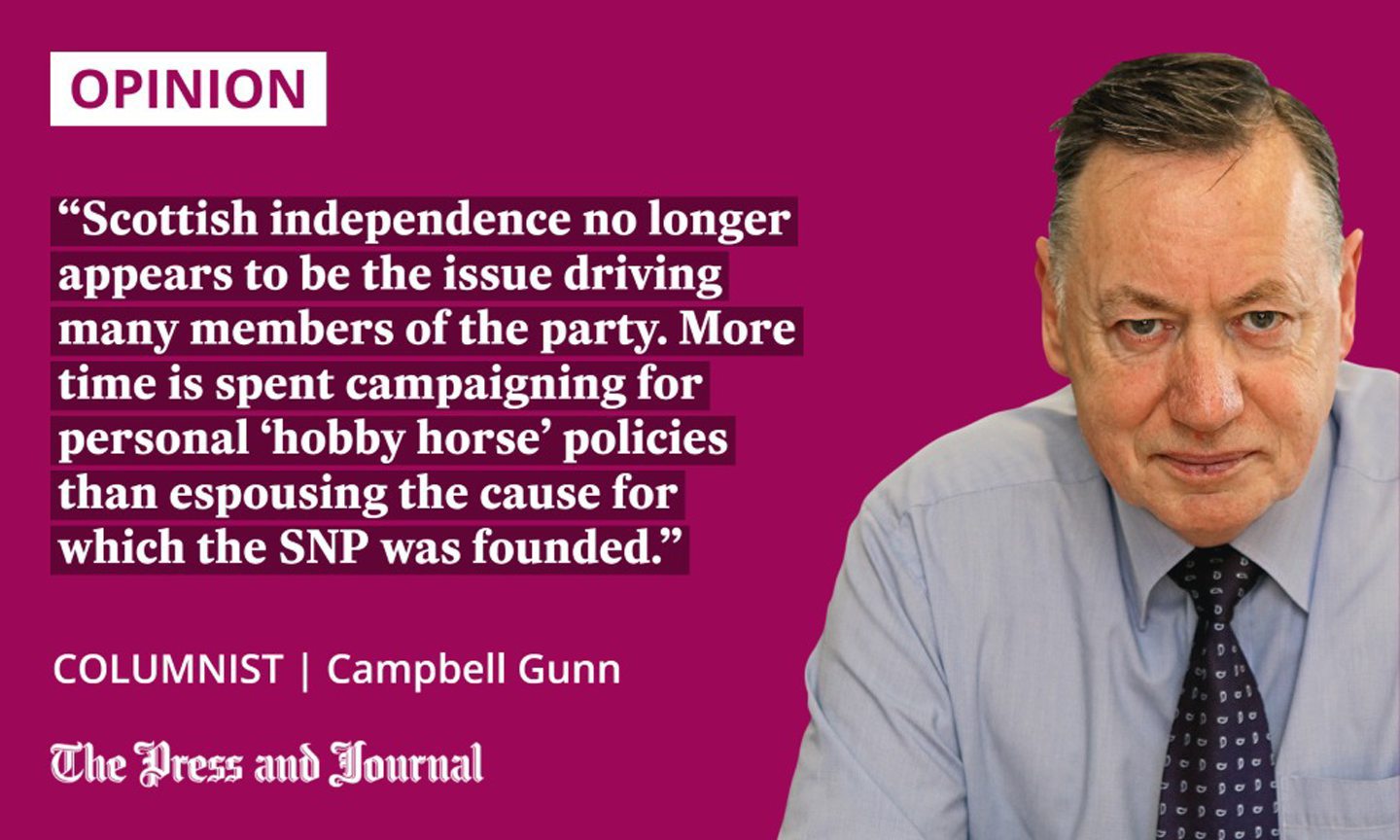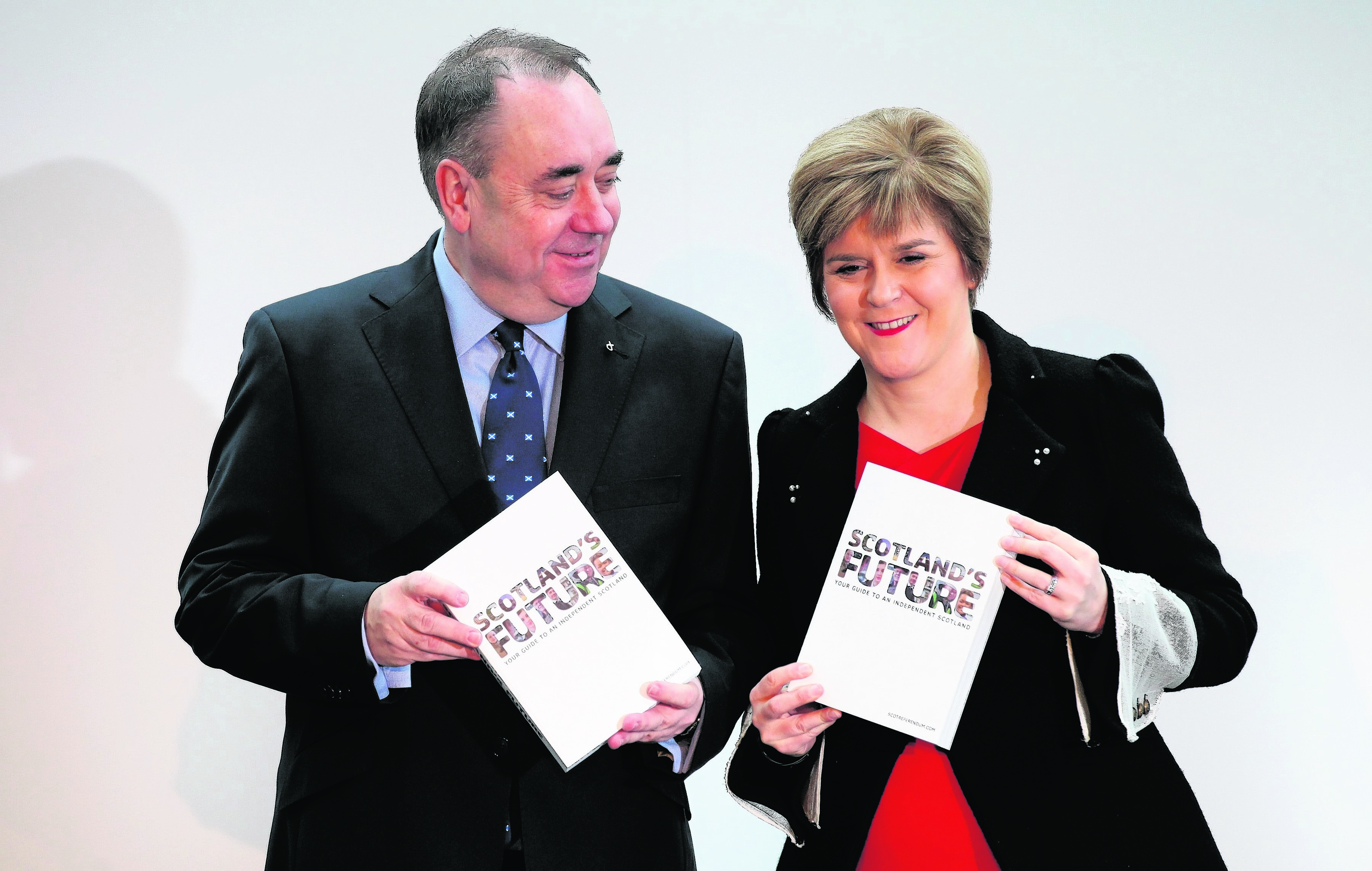The attitude which spawned the view that party must always come before conscience is a dangerous one, and smacks of control-freakery, writes Campbell Gunn.
I’ve studiously tried to avoid commenting on the current state of the SNP. This is mostly because of loyalty to the party, which I joined when I was still a schoolboy, a long, long time ago.
At school, I stood for the party in sixth-year mock elections, at a time when the SNP had no elected representatives in any parliament. Since then, I’ve held elected posts in branches in various parts of Scotland.
When my full-time career as a journalist ended, I went to work as a spad – a special adviser – first to Alex Salmond, then to Nicola Sturgeon. So, I believe I can claim that my commitment to both the SNP and the cause of Scottish independence is unquestionable.
But, my faith in the party, of which I am still a member over half a century after first joining, is being sorely tested these days.
I have never been all that exercised by the trans rights row which appears to be doing so much damage to the party’s polling. Like, I suspect, most people, it was not an issue of which I had previously been aware, or on which I held any strong views, either way.

However, there is little doubt that the government’s decision to press on with its gender recognition reform policy in the face of overwhelming public opposition has been a serious error.
Remember that there was never any mention of introducing a policy of self-identification in the party’s manifesto at the last election. No matter how worthy and correct the introduction of the Gender Reform Act was, pressing ahead with it showed a lack of political judgment.
Some elected representatives have now even suggested that anyone who doesn’t agree with each and every policy espoused by the party shouldn’t be allowed to stand for election. How would that work?
Remember the divisive debate over membership of Nato a few years back? The party changed its policy mid-term. Does that mean that all those elected members who opposed joining – that was probably around half – should have stood down, since the party suddenly supported a policy with which they disagreed?
Independence issue is no longer driving the party
The attitude which spawned the view that party must always come before conscience is a dangerous one, and smacks of control-freakery. When I worked for the government, it was often claimed that the SNP was a strictly-controlled organisation, where no one was allowed to rock the boat. That was not true.
No one stepped out of line because we all believed in the same goal of Scottish independence, which we felt was more important than differences over individual policies. Nobody had to tell us to keep our discipline.
Now, it seems, things are different. The reason? Scottish independence no longer appears to be the issue driving many members of the party.
More time is spent campaigning for personal “hobby horse” policies than espousing the cause for which the SNP was founded. And, according to some in the party, if you don’t agree with all of these individual policies then you should leave.
In addition, we now have senior people in the party speaking out against government policy and performance – and not only the “usual suspects”. Concerns have been raised about the proposed de facto referendum, the failure to dual the A9, the bottle return scheme and the banning of alcohol advertising, in addition to concern over gender recognition reform.
Add to that opposition attacks on local council cuts, NHS waiting times and the ferries fiasco, and it appears that we have a government which seems to have lost the sure political touch it once possessed.
I feel pessimistic about the future
I do not doubt that everyone currently in the SNP supports independence. But, is it the overriding priority which it should be?
Next month, a special conference will be held in order for party members to vote on whether to use the upcoming general election as a referendum on independence. It’s one of the daftest ideas I’ve heard.
The de facto ‘referendum’ will have no legal standing. And, no matter the outcome, Westminster will, justifiably, ignore it
Just because one party says they’ll campaign only on a single issue, doesn’t make the election about that. The other parties will ignore it and fight on their manifestos as usual. The “referendum” will have no legal standing. And, no matter the outcome, Westminster will, justifiably, ignore it.
I intend to stay in my party – after all, I’ve been a member longer than most SNP MSPs and MPs have been alive. But I do so with a heavy heart and a feeling of pessimism. The optimism and enthusiasm of the 2014 campaign now feels like a distant memory.
Campbell Gunn is a retired political editor who served as special adviser to two first ministers of Scotland, and a Munro compleatist


Conversation